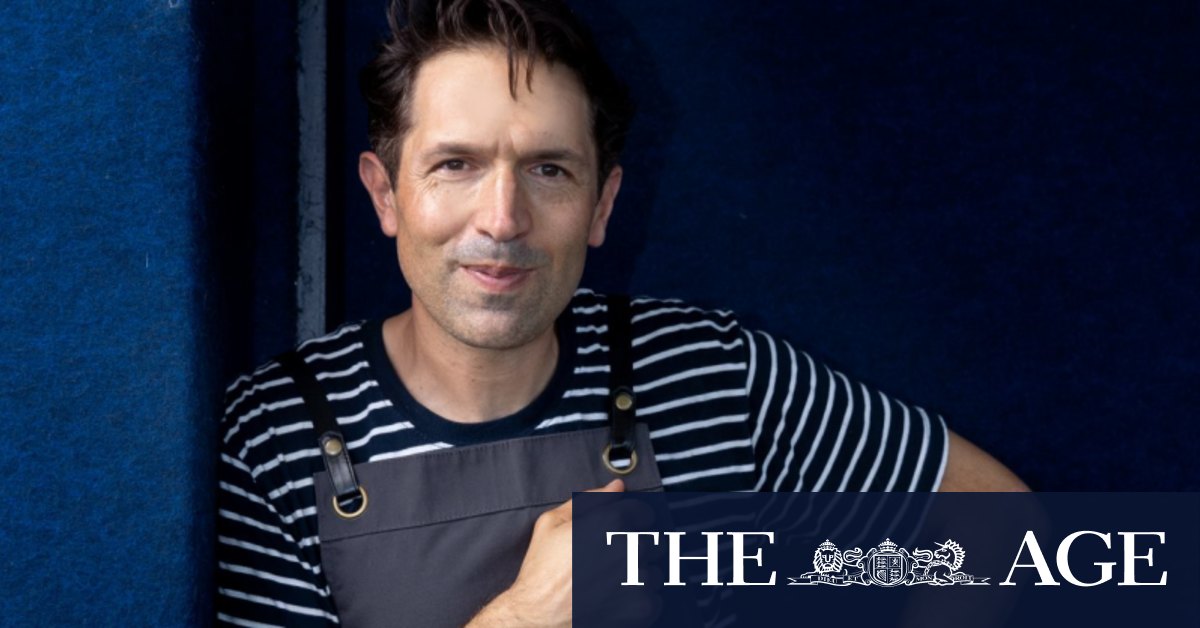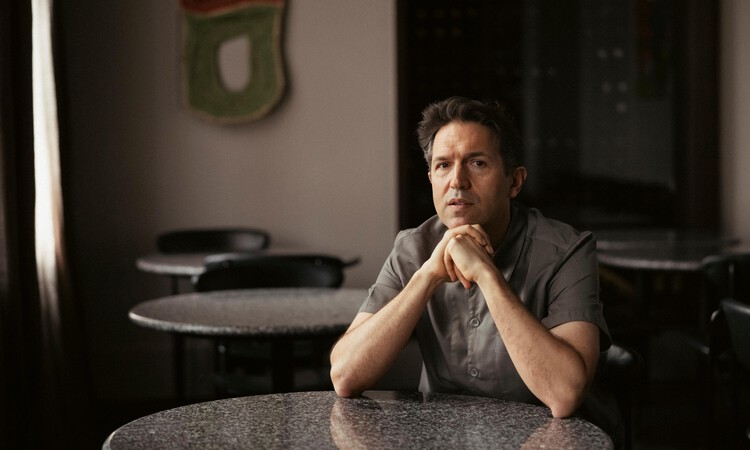And just like that, we find ourselves in October. As I saw on one of Danil Nevsky’s recent posts — you know, he of memes and @cocktailman fame — that means it’s 50 Best Bars time. The annual list of The World’s 50 Best Bars comes out each year in October, and that means there will be a lot of fuss made: some warranted, some undeserved, on social media, in trade media publications, and the media more broadly.
So I thought it was good timing to get this talk, recorded at the Better Bars Summit during the Bartenders’ Weekender in Brisbane back in June, out and into your ears for Drinks At Work. It’s a chat with Stefano Catino, and whilst we talk a little about the 50 Best list — Maybe Sammy, one of Stefano’s bars in the Maybe Group he owns with Vince Lombardo, has been on the list five years running — we also talk about the sheer amount of hard work that goes into making a bar a success. I love talking shop with Stefano, do give it a listen.
We also talk about how Maybe Sammy landing on The World’s 50 Best Bars list changed their business essentially overnight. It’s an experience that has been felt by many bars that make the international list; Caretaker’s Cottage in Melbourne saw their patronage increase the very next day after they made the list last year, and they’ve been pretty much full since; the same was the case for Maybe Sammy.
So getting on the list — there were only two Australian bars that made it last year — can result in the bar being busier.
Now, there can be too much made of awards and lists like 50 Best; they’re lightning rods for both criticism and applause (and full disclosure, I am the Oceania academy chair for 50 Best Bars, an unpaid role but one for which they fly me to the event each year; Boothby also puts on its own awards events — have you entered Drink of the Year yet?) But what awards and lists do is create awareness outside of our industry, tentpoles to talk about the good and the great in the business. I don’t think that’s a bad thing. Again, it’s not the only thing, and it’s also not for every bar, either. You don’t need to be on the list for you bar to be a financial success and critically acclaimed.
Awards and lists have been in the news this week, thanks to an excerpt from award-winning chef Ben Shewry’s new book, Uses For Obsession — it’s a long read, published in The Australian, and one that pulls no punches about the role of food critics, restaurant guides and lists, and the whole food media landscape, all whilst publicising... a work of food media. You’ll need a subscription to read it in full, but The Guardian and The Age have some round-ups on the piece that will give you the general gist of it.
It is also worth noting the different headlines on each of the three pieces:
- The Guardian: ‘If we can’t tell the truth … we can’t run Attica’: Ben Shewry on the failings of fine dining
- The Australian: Food critics have lost their way, says Australia’s leading chef
- The Age: ‘Nothing to do with losing a hat’: Top chef from downgraded restaurant attacks reviewers
Which publication, do you think, has a restaurant guide and awards hats and comes in for criticism in Shewry’s piece?
I’d encourage you to give Shewry's article a read in full if you can; it’s rather scathing, and there are many good points made (as well some unfair points, too); the same could be said of the articles and reviews penned by writers about restaurants. Reading it I thought that perhaps it misunderstands the work that writers and reviewers do; I’ve no doubt that he’s had the same thought about writers not understanding what chefs do.
After all, how you feel about a thing depends on where you stand. When it comes to how good we think a certain restaurant is, or the success of a bar’s new drinks menu, or the quality of a drink, what you think is subjective. You can, and should, aim for objectivity. Hopefully, if you’re a food critic, you try to be as objective as one can, and you have a deep knowledge of food and restaurants and technique; if you’re a cocktail comp judge hopefully you have an understanding of how good drinks are made and what to look for, and an understanding of classics and the drinks scene more broadly.
Shewry believes reviewers must have a great palate; he writes that “For chefs and critics alike, palate is everything.” Which is great and admirable, but it is also bullshit.
Our palates are easily fooled. Would Attica’s food taste as good in another environment? Maybe. But there’s a reason why spirits brands spend money on advertising and marketing; the story around a spirit shapes how you think of the liquid, and it shapes what you perceive on the palate. Many things affect your palate: the time of day you taste something, who you’re with — are you in a good mood? — and, I imagine, the accolades you’ve accumulated for your restaurant influences how the food tastes, too.
So let’s say you don’t have that deep knowledge of drinks or the history of restaurants — does that mean you’re not entitled to review a place from the customer's perspective? Most people — 90 percent I reckon — who go to bars don’t give what they drink much thought. What they look for in a bar is different to what I look for. And most people probably don’t care that much about what Attica does technique-wise or how it showcases native ingredients — they might just like that it’s a fancy restaurant, they have been told it is good, and things taste great. So maybe being a good writer with life experience might be enough to be a good critic, restaurant expertise be damned.
I tend to side with Shewry — I think expertise and knowledge is essential in a critic. I’ve read bar reviewers who were clueless about what makes a good bar great, because they don’t understand hospitality from that granular level. But that’s my preference; what I want to know might be different to what the public wants to know. And so I think there is a role out there for people who may not be as well drilled in food as a chef, but who are experts in communication; not everyone can eat somewhere and express what that place feels like to someone else. That is a skill.
I also think that there should be more hospitality people who aren’t experts at communication talking about what they do. No one will be as passionate as you. Take Stefano Catino for instance: he is the first to admit that sometimes the right words don’t come out — English is his second language, after all — but I think few writers communicate the passion for hospitality as well as Stefano does. He feels it in his bones.
“I grew up inside my dad’s restaurant,” he says in this episode. “All I saw was hospitality.”
You can listen to the latest episode of Drinks At Work in the podcast player of your choice.
















